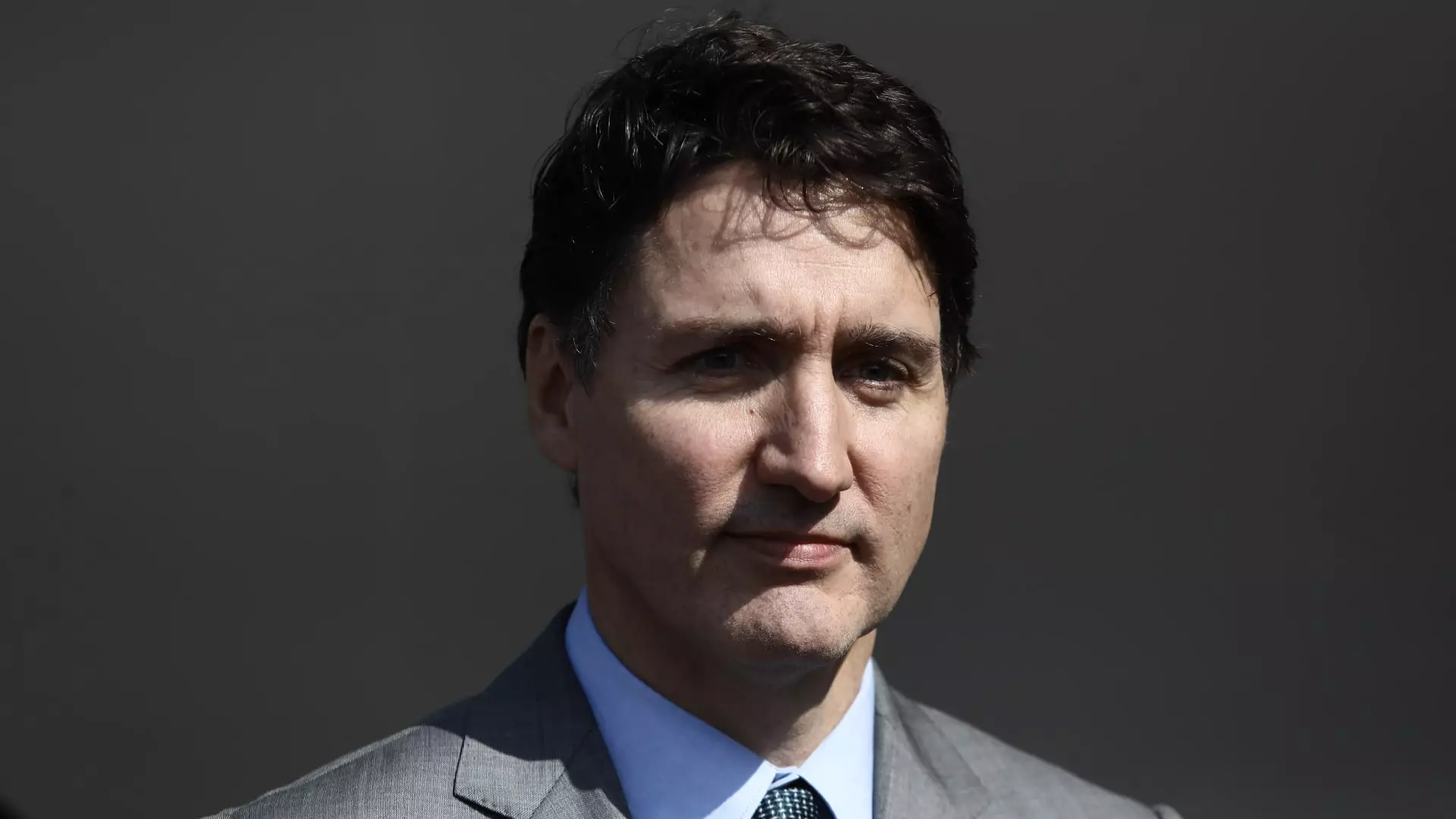The political landscape in Canada is shifting as Prime Minister Justin Trudeau faces increasing scrutiny and pressure to resign from his leadership position. A source close to Trudeau indicated that an announcement regarding his intention to step down could occur imminently. This source, wishing to remain unnamed, provided insight to Reuters following a report from the Globe and Mail suggesting that Trudeau may announce his departure as early as Monday. The expectation of a resignation stems from a combination of dwindling support and internal party pressures as the opposition Conservatives gain traction ahead of an impending election that must take place by the end of October.
Trudeau’s potential exit comes at a precarious time for the Canadian Liberal Party, which is grappling with a series of disheartening public opinion polls that signal a significant loss in the upcoming elections if he remains at the helm. The source revealed that while there is no definitive timeframe for Trudeau’s resignation, many within the party are urging him to make a decision before a scheduled emergency assembly of Liberal MPs on Wednesday. This urgency reflects not merely the waning popularity of Trudeau but also a broader concern about the party’s leadership and direction.
As political tension mounts, the Prime Minister’s Office has remained unresponsive to inquiries regarding Trudeau’s status and future plans. This silence adds to the uncertainty, leaving analysts and constituents alike speculating about the implications of his leadership or potential lack thereof. The scheduled meeting that Trudeau will attend, piloting discussions on Canada-U.S. relations, indicates that he is still engaged in governance, but rising calls for a change in leadership continue to echo throughout the party.
Should Trudeau decide to resign, it would precipitate a cascade of events leading to an urgent need for a new Liberal leader. Recent conversations between Trudeau and Finance Minister Dominic LeBlanc have hinted at the possibility of LeBlanc stepping in as an interim leader, which may pave the way for a quicker leadership selection process. However, the practicality of LeBlanc—who may be harboring ambitions for the leadership himself—serving in both roles remains questionable.
Trudeau’s journey, which saw him take the reins of the Liberal Party in 2013 amid significant adversity—when the party occupied a third-place position in the House of Commons—has been characterized by highs and lows. His initial ascent in 2015 was fueled by a promise of progressive ideals, including environmental action and gender rights. However, his tenure has increasingly come under fire as challenges from within his government and external pressures from constituents have mounted, primarily stemming from the ongoing fallout from the COVID-19 pandemic.
The backdrop of Trudeau’s potential resignation reveals a larger narrative of governmental difficulty. Despite significant fiscal efforts, such as extensive spending to support businesses during the pandemic, sentiments of public frustration have grown, primarily due to soaring prices and increased living costs. The government’s struggle with immigration policies has further complicated its standing, with rising numbers of arrivals exacerbating an already stressed housing market that many citizens have begun to perceive as untenable.
Trudeau’s administration has been marked not only by initial promises of prosperity and unity but also by a series of miscalculations and policy missteps that have alienated various voter demographics. The fallout from his recent attempts to reorganize his cabinet—specifically the fallout from a controversial attempt to demote a politically significant ally—illustrates the growing discontent that has coursed through the ranks of the Liberal Party and has become increasingly public.
Justin Trudeau stands at a crucial juncture, potentially facing the end of his leadership as both the Liberal Party and the Canadian public reassess their confidence in his ability to govern effectively. The weeks ahead are likely to be pivotal, shaping not only the future of Trudeau’s career but also the political trajectory of Canada as it prepares for an electoral contest that could redefine its leadership landscape.

